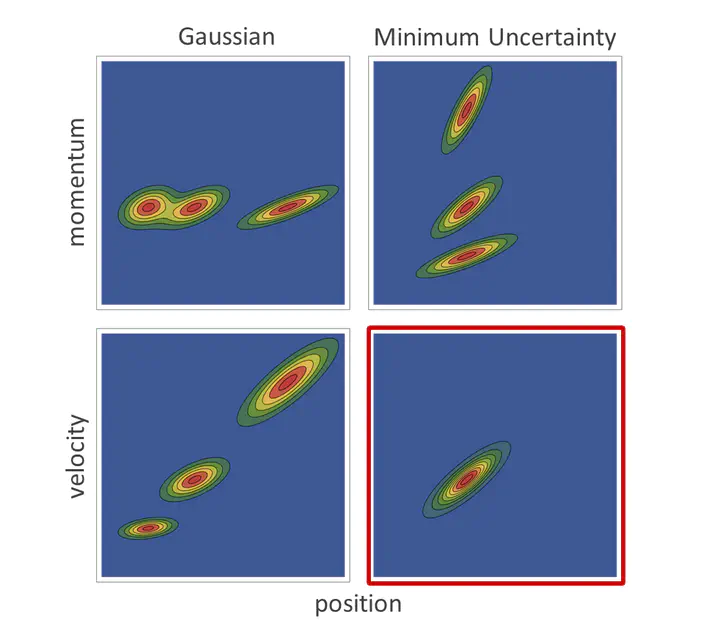
Abstract
Composite particles—atoms, molecules, or microspheres—are unique tools for testing joint quantum and general relativistic effects, macroscopic limits of quantum mechanics, and searching for new physics. However, all studies of the free propagation of these particles find that they delocalize into separate internal energy components, destroying their spatial coherence. This renders them unsuitable for experimental applications, as well as theoretical studies where they are used as idealized test masses or clocks. Here we solve this problem by introducing a class of states with minimal uncertainty in spacetime that fully overcome the delocalization. The relevant physics comes from minimizing the uncertainty between position and velocity, rather than position and momentum, while directly accounting for mass as an operator. Our results clarify the nature of composite particles, providing a currently missing theoretical tool with direct relevance for studies of joint foundations of quantum and relativistic phenomena, which removes a roadblock that could limit near-future quantum tests using composite particles.